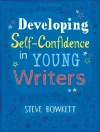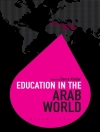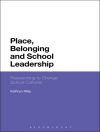The expert guide to the identification and support of artistically and musically talented students!
Is artistic talent a matter of nature or nurture? What are the best methods for identifying potential in the arts? How can educators and parents encourage and support artistic development? From identification to the empowerment of teachers of talented arts students, the readings within Artistically and Musically Talented Students offer the best practices the leaders in the field have to offer.
Key features include:
- A practical look at the needs of artistically and musically talented students by field leader Enid Zimmerman, and her recommendations for future study
- Methods for recognizing potential talent in dance, art, and music
- Eight articles from the most influential researchers of giftedness and the arts
The ERGE Series:
The National Association for Gifted Children series Essential Readings in Gifted Education is a 12-volume collection of seminal articles from Gifted Child Quarterly. Put the knowledge and power of more than 25 years of research on giftedness and talent into your hands with the leading theories, studies, and findings the experts in the field have to offer.
Inhaltsverzeichnis
About the Editors
Series Introduction – Sally M. Reis
Introduction to Artistically and Musically Talented Students – Enid Zimmerman
1. Decisions Regarding Music Training: Parental Beliefs and Values – David Yun Dai, Robin M. Schader
2. Musical Talent: Innate or Acquired? Perceptions of Students, Parents and Teachers – Robert J. Evans, Robert Bickel, and Edwina D. Pendarvis
3. The Crystallizing Experience: A Study in Musical Precocity – Cathy Freeman
4. Talent Beyond Words: Identification of Potential Talent in Dance and Music in Elementary Students – Susan Baum, Steven V. Owen, and Barry A. Oreck
5. Talent Beyond Words: Unveiling Spatial, Expressive, Kinesthetic and Musical Talent in Young Children – Sandra I. Kay, Rena F. Subotnik
6. Identifying Artistically Talented Students in Four Rural Communities in the United States – Gilbert Clark, Enid Zimmerman
7. Views of Self, Family Background, and School: Interviews with Artistically Talented Students – Gilbert A. Clark, Enid Zimmerman
8. I Don′t Want to Sit in the Corner Cutting Out Valentines: Leadership Roles for Teachers of Talented Arts Students – Enid Zimmerman
Index
Über den Autor
Sally M. Reis is a professor and the department head of the Educational Psychology Department at the University of Connecticut where she also serves as principal investigator of the National Research Center on the Gifted and Talented. She was a teacher for 15 years, 11 of which were spent working with gifted students on the elementary, junior high, and high school levels. She has authored more than 130 articles, 9 books, 40 book chapters, and numerous monographs and technical reports. Her research interests are related to special populations of gifted and tal-ented students, including: students with learning disabilities, gifted females and diverse groups of talented students. She is also interested in extensions of the Schoolwide Enrichment Model for both gifted and talented students and as a way to expand offerings and provide general enrichment to identify talents and potentials in students who have not been previously identified as gifted. She has traveled extensively conducting workshops and providing profes-sional development for school districts on gifted education, enrichment programs, and talent development programs. She is co-author of The Schoolwide Enrichment Model, The Secondary Triad Model, Dilemmas in Talent Development in the Middle Years, and a book published in 1998 about women’s talent development titled Work Left Undone: Choices and Compromises of Talented Females. Sally serves on several editorial boards, including the Gifted Child Quarterly, and is a past president of the National Association for Gifted Children.












